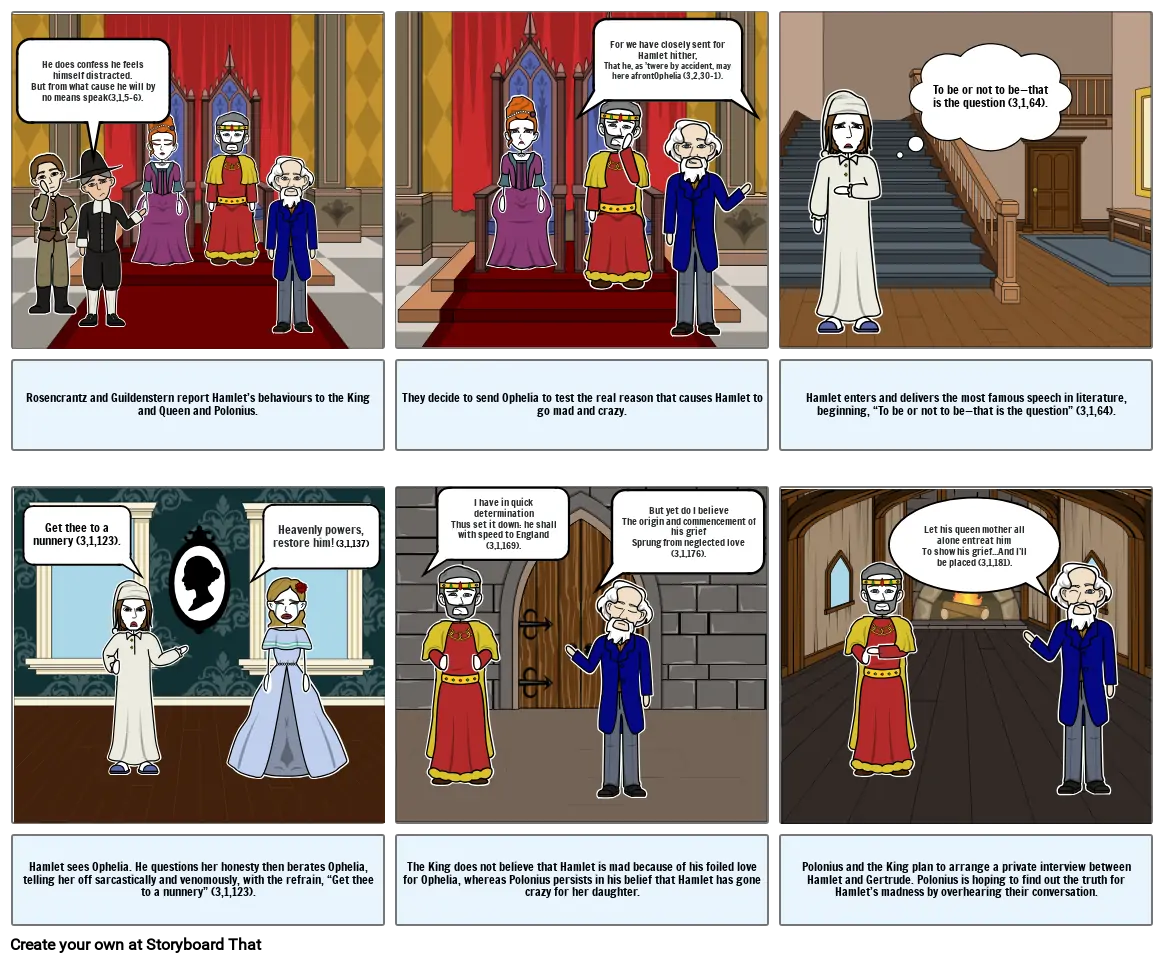Hamlets soliloquy act iii scene i

Süžeeskeem Tekst
- Libisema: 1
- He does confess he feels himself distracted.But from what cause he will by no means speak(3,1,5-6).
- Rosencrantz and Guildenstern report Hamlet’s behaviours to the King and Queen and Polonius.
- Libisema: 2
- For we have closely sent for Hamlet hither,That he, as ’twere by accident, may here afrontOphelia (3,2,30-1).
- They decide to send Ophelia to test the real reason that causes Hamlet to go mad and crazy.
- Libisema: 3
- To be or not to be—that is the question (3,1,64).
- Hamlet enters and delivers the most famous speech in literature, beginning, “To be or not to be—that is the question” (3,1,64).
- Libisema: 4
- Heavenly powers, restore him! (3,1,137)
- Get thee to a nunnery (3,1,123).
- Hamlet sees Ophelia. He questions her honesty then berates Ophelia, telling her off sarcastically and venomously, with the refrain, “Get thee to a nunnery” (3,1,123).
- Libisema: 5
- The King does not believe that Hamlet is mad because of his foiled love for Ophelia, whereas Polonius persists in his belief that Hamlet has gone crazy for her daughter.
- Libisema: 6
- Let his queen mother all alone entreat himTo show his grief...And I’ll be placed (3,1,181).
- Polonius and the King plan to arrange a private interview between Hamlet and Gertrude. Polonius is hoping to find out the truth for Hamlet’s madness by overhearing their conversation.
- Libisema: 0
- I have in quick determinationThus set it down: he shall with speed to England (3,1,169).
- But yet do I believeThe origin and commencement of his griefSprung from neglected love (3,1,176).
Loodud üle 30 miljoni süžeeskeemi

